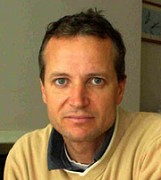Authors
Discussion
Populations that serve as hosts for pathogens are nearly always structured in some way, often by host species, sub-population, space, or age, and it is now well established that this structure can have important influences on transmission and persistence dynamics of infectious diseases. The key to the implementation of effective control measures often rests on some quantitative understanding of transmission rates across structured host populations, and yet, reconstructing transmission processes is usually challenging. Sometimes, transmission is ‘memorable’ for some reason, but mostly it can only be inferred with considerable uncertainty. Because mutation rates are high and generation times short, evolutionary and epidemiological time-scales can be conflated, and so sequencing all or part of the genomes of circulating pathogens can contribute important information regarding the transmission of pathogens among host populations. Even then, it will usually be necessary to integrate such genetic data with other relevant domain information &hypen; for example, the date and spatial location of sampling, and other data where available, in order to minimize the uncertainty in the resulting parameter estimation. However, the use of genetic information requires a sample that contains pathogen genetic material and this is often also challenging to acquire, particularly if symptoms are sub-clinical or in other ways inapparent, and the duration of acute infection is short. In which case, often the only remaining indication of prior infection is serological. Serology data is arguably the weakest of all epidemiological data, indicating prior exposure at some unknown time to some (possibly) unknown strain sub-type, type, or even species. Under these circumstances the sophisticated statistical analysis of all the possible data becomes essential to draw out epidemiological signal. In this talk I will present a brief overview of the challenges of reconstructing transmission processes illustrated with examples from a variety of pathogen systems, emphasizing the value of data synthesis and statistical integration.

